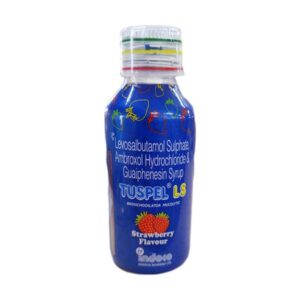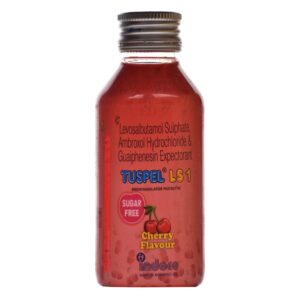MENTHOL + DIPHENHYDRAMINE + AMM.CHLORIDE + SOD.CITRATE
Menthol: Menthol is a naturally occurring compound found in plants such as mint and eucalyptus. It is widely used as an ingredient in various pharmaceutical and personal care products due to its cooling and soothing effects on the skin and mucous membranes.
Menthol is primarily used as a topical analgesic and is commonly found in products such as creams, gels, ointments, and lozenges. It is known to provide temporary relief from minor aches and pains, muscle sprains, and insect bites. Menthol also has decongestant properties and can be found in some throat lozenges and nasal sprays to help alleviate nasal congestion and cough associated with the common cold.
The exact mechanism of action of menthol is not fully understood but is believed to be related to its ability to activate specific receptors in the body, specifically the transient receptor potential (TRP) channels. These channels are involved in the detection of temperature and pain sensations. By activating the specific TRP channels, menthol produces a cooling and numbing sensation that helps reduce discomfort and pain.
The dose of menthol depends on the specific product being used and should be followed as directed on the label or as advised by a healthcare professional. It is important to avoid applying or ingesting excessive amounts of menthol as it can lead to irritation or adverse effects.
While menthol is generally considered safe, some possible side effects may occur. Topical use of menthol may cause skin irritation, redness, or a burning sensation in some individuals. If these side effects persist or worsen, it is recommended to discontinue the use of the product and seek medical advice. Additionally, ingesting large amounts of menthol can lead to nausea, vomiting, dizziness, and headache.
It is worth noting that some individuals may be sensitive or allergic to menthol. If any signs of an allergic reaction such as rash, itching, swelling, or difficulty breathing occur, immediate medical attention should be sought.
Overall, menthol is a commonly used topical analgesic that provides temporary relief from minor aches and pains, muscle sprains, and nasal congestion. It is important to use menthol-containing products as directed and to be aware of any potential side effects or allergies. If uncertain about its use or experiencing any concerning symptoms, it is advisable to consult a healthcare professional.
Diphenhydramine: Diphenhydramine, commonly known by its brand name Benadryl, is an antihistamine medication used to relieve symptoms of allergies, such as itching, watery eyes, runny nose, and sneezing. It is also used as a sleep aid and to treat motion sickness.
The mechanism of action of diphenhydramine involves blocking the effects of histamine, a substance responsible for causing allergic reactions. By preventing histamine from binding to its receptors, diphenhydramine helps alleviate allergy symptoms.
Diphenhydramine is available in various forms, including tablets, capsules, chewable tablets, liquid, and topical creams or gels. The recommended dose for adults is usually 25 to 50 mg every 4 to 6 hours, but the dosage may vary depending on the individual’s needs and response to the medication. It’s important to carefully follow the instructions provided by your healthcare provider or the product label.
While diphenhydramine can be effective in relieving allergy symptoms and promoting sleep, it can also cause certain side effects. Common side effects may include drowsiness, dry mouth, dizziness, blurred vision, constipation, and urinary retention. These side effects are generally mild and temporary, but individuals should avoid driving or operating machinery until they know how the medication affects them. Additionally, diphenhydramine should be used with caution in elderly individuals, as they may be more prone to experiencing severe drowsiness and confusion.
In some cases, diphenhydramine can cause more serious side effects, such as difficulty breathing, rapid heartbeat, hallucinations, seizures, or allergic reactions. If any of these symptoms occur, medical attention should be sought immediately.
It is important to consult with a healthcare professional before using diphenhydramine, especially if you have any underlying medical conditions or are taking other medications, as there may be potential interactions.
Overall, diphenhydramine is a widely used antihistamine that provides relief from allergic symptoms and aids in sleep, but it should be used responsibly and as directed to minimize any potential side effects.
Amm.chloride: Drug Name: Ammonium Chloride
Use: Ammonium chloride is a medication that is used to treat certain medical conditions such as metabolic alkalosis, struvite kidney stones, and certain urinary tract infections. It is also used as an expectorant to help loosen mucus in the respiratory tract.
Mechanism of Action: Ammonium chloride works by acidifying the urine and making it more acidic. This helps to dissolve certain types of kidney stones and prevent the formation of new stones. As an expectorant, it helps to thin and loosen mucus in the respiratory tract, making it easier to cough up and clear the airways.
Dose: The dosage of Ammonium chloride may vary depending on the condition being treated and individual patient factors. It is usually taken orally as a tablet or a solution. It is important to follow the dosing instructions provided by the healthcare professional or as stated on the prescription label.
Side Effects: Like any medication, Ammonium chloride can cause side effects. The common side effects may include nausea, vomiting, stomach discomfort, diarrhea, and headache. Rarely, severe allergic reactions or other serious side effects can occur and should be reported to a healthcare professional immediately. It is important to discuss potential side effects with a doctor before starting Ammonium chloride.
Sod.citrate: Sod.citrate, also known as Sodium Citrate, is a medication used primarily as an alkalinizing agent and urinary alkalizer. It is commonly used in the prevention and treatment of kidney stones and urinary tract infections.
The mechanism of action of Sod.citrate involves increasing the pH of the urine by providing bicarbonate ions. This helps in reducing the acidity of urine, which can aid in preventing the formation of certain types of kidney stones. Additionally, it can also help in dissolving existing stones by increasing the solubility of certain minerals.
The usual dose of Sod.citrate for adults is 15-30 ml of solution, diluted in water, three times a day. The dosage may vary depending on the condition being treated and the individual’s response, so it is important to follow the prescribed dose directed by a healthcare professional.
Like any medication, Sod.citrate can cause some side effects. Common side effects may include gastrointestinal symptoms such as nausea, vomiting, diarrhea, and abdominal pain. High doses or prolonged use of Sod.citrate can lead to metabolic alkalosis, which is characterized by symptoms like confusion, muscle twitching, and weakness. It is recommended to monitor electrolyte levels periodically, especially in patients at risk for metabolic alkalosis, such as those with impaired kidney function or heart failure.
As with any medication, it is important to consult with a healthcare professional before starting Sod.citrate to determine the appropriate dose, duration, and to discuss any potential drug interactions or contraindications.


